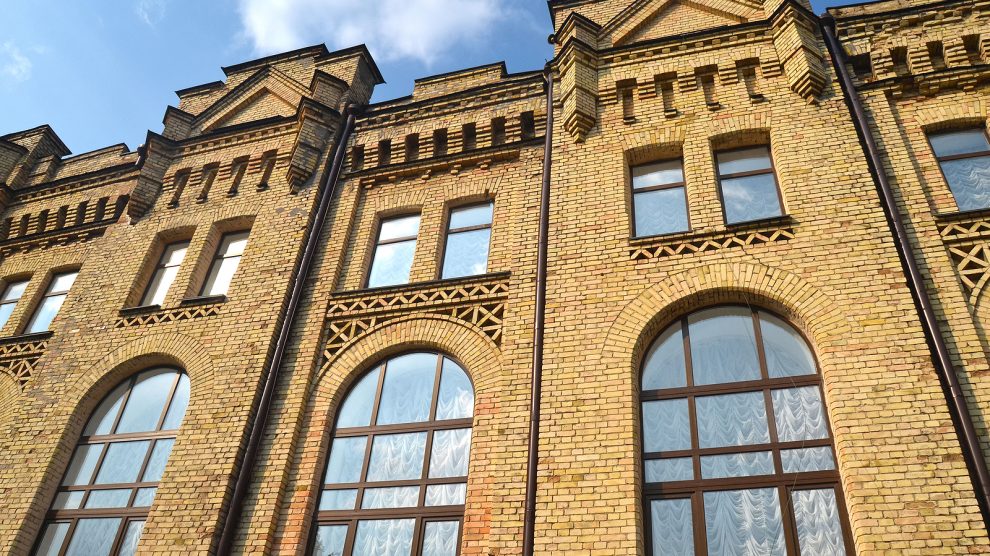Young Ukrainians have spoken, and they want more investment in education.
As part of Emerging Europe’s major recent look at Ukraine’s education system, Ukraine’s War for Talent, produced with support from the German Marshall Fund of the United States, we asked young Ukrainians (aged 16-34) to complete a thorough survey with the aim of finding out how they perceive their educational future and their potential careers.
Interestingly, survey respondents echoed the findings from our own desktop research, underscoring the critical need for increased investment in Ukrainian education.
Our survey data also reveals that Russia’s war on Ukraine has had a major impact on the educational goals of the country’s young people, but that part of that impact has been an increased resilience and commitment to achieving those educational goals, highlighting the robustness of Ukrainian society amidst the war.
Younger generations are also now more focused on educational goals that will contribute to Ukraine’s recovery.
Speak English?
The survey also confirmed that Ukraine needs to improve the English language skills of its young people. English proficiency in Ukraine remains relatively low, with over half of our respondents (52.4 per cent) reporting a level below intermediate (B1).
Only 17.1 per cent of those Ukrainians surveyed have achieved an upper-intermediate (B2) or higher level, while 30.5 per cent are at the B1 level, which is generally insufficient for professional communication.
Encouragingly, younger age groups show higher levels of English proficiency, with 21.2 per cent of 22-25-year-olds and 19.5 per cent of 18-21-year-olds reaching B2 or above.
There is, however, a notable discrepancy between men and women: high levels of English proficiency (B2 or higher) are more common among men (31.8 per cent compared to 20.1 per cent). Residents of large cities are also better English speakers: 23.6 per cent reach B2 in cities with more than one million residents, a percentage that drops to just 12.6 per cent in cities with 250,000-500,000 residents.
Motivation
Looking at the motivation of young Ukrainians to pursue higher education, the chance to ‘enhance future career prospect’ was by far the most popular.
Again there was a notable difference between men and women however. While most men reported that the main motivation for educating themselves is to enhance career perspectives and to help Ukraine’s recovery, more female respondents reported that they are motivated by the personal and intellectual growth education provides as well as their desire for an education which provides them with opportunities to start a career in multiple fields.
When it comes to where Ukrainians prefer to study, the majority opted for public universities, where tuition is often free – hence the need for more state funding of universities.
The exception is the 30-34 age group, where a significant share of respondents consider that informal courses are the most valuable for them. Only a modest percentage of Ukrainians appear to desire an education abroad – the percentage is highest among the 26-29 age group, at just over 15 per cent.
Financial and safety concerns
Financial constraints are the main obstacle identified by Ukraine’s young people when it comes to accessing education, something which needs to be acknowledged by policy makers.
Psychological and emotional barriers are also an issue, which requires an increase in access to affordable psychological support for education receivers.
Then there are safety concerns – understandable in wartime. These also feature in the factors related to pursuing a career in Ukraine after graduation. Safety concerns were cited as the most important factor by the 16-17 age group, while fair compensation has the highest importance for the 30-34 age group.
Interestingly, for men economic stability in the country is more important than their own compensation, while for women the situation is the opposite.
Much to ponder
“Our survey, and the report as a whole, offers Ukraine’s policy makers, and its partners, much to ponder,” says Craig Turp-Balazs, editor of Emerging Europe.
“Despite hardships, investing in education is crucial for the country’s postwar recovery, as it fosters human capital, promotes societal stability, and cultivates resilience.
“Lessons from other conflict-affected nations highlight the need for tailored strategies and systemic improvements, such as prioritising the flexibility and resilience of the educational system to ensure learning continues despite disruptions. The country’s young people have spoken – it’s time to take their views into serious consideration.”
A copy of the full report, Ukraine’s War for Talent, can be downloaded for free, here.
Unlike many news and information platforms, Emerging Europe is free to read, and always will be. There is no paywall here. We are independent, not affiliated with nor representing any political party or business organisation. We want the very best for emerging Europe, nothing more, nothing less. Your support will help us continue to spread the word about this amazing region.
You can contribute here. Thank you.


